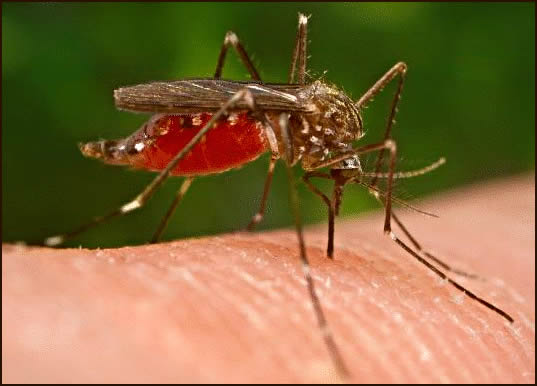
World Malaria Day is celebrated on April 25 every year across the world, with the World Health Organization selecting a different theme for each year's event. This year's theme, "Time to deliver zero malaria: invest, innovate, implement," focuses on the implementation of strategies to reach marginalized communities.
According to the latest World Malaria Report, the WHO African Region bears a significant portion of the global malaria burden, with Nigeria having the highest burden worldwide. In 2022, the African region was home to around 95% of all malaria cases and 96% of deaths, with children under five accounting for 80% of all malaria deaths. Four African countries, including Nigeria, contributed to more than half of all malaria deaths globally, with Nigeria alone accounting for 31.3% of global malaria deaths, followed by the Democratic Republic of the Congo (12.6%), the United Republic of Tanzania (4.1%), and Niger (3.9%).
Malaria continues to be a major public health issue in Nigeria, with approximately 97 million cases and 300,000 deaths reported each year. Despite some progress in reducing the burden of this disease, there is still much work to be done to eliminate it completely.
On the occasion of World Malaria Day 2023, it is essential to evaluate our current situation and identify ways to accelerate progress towards a malaria-free Nigeria.
Malaria is caused by a parasite that spreads through the bites of infected mosquitoes. The disease primarily affects pregnant women and children below the age of five, and severe cases can be fatal. In Nigeria, both the government and non-governmental organizations have made substantial efforts to combat malaria, including providing insecticide-treated bed nets, carrying out indoor residual spraying, and improving access to effective antimalarial drugs. However, these interventions face significant obstacles, such as insufficient funding, weak healthcare systems, and resistance to antimalarial drugs and insecticides.
Over the years, international donors have ramped up their support for malaria control programs in several countries, including Nigeria. However, funding for malaria control is still inadequate to meet global targets for eliminating the disease. Thus, it is essential to maintain long-term investment in malaria control and research, with a focus on boosting domestic financing for malaria programs and reducing reliance on international donors.
Given that Nigeria has the highest number of malaria cases globally, the government must prioritize funding for malaria programs and work towards establishing sustainable financing mechanisms. This would ensure that malaria interventions are adequately funded and implemented, thereby reducing the burden of the disease on the most vulnerable communities.
Innovation has played a crucial role in advancing efforts to combat malaria. Innovative approaches, including the creation of new antimalarial drugs, insecticides, and vaccines, as well as the control of the malaria parasite's larvae, have significantly contributed to reducing the malaria burden in many regions worldwide.
Despite these accomplishments, additional innovative solutions are necessary to overcome the remaining challenges in malaria control. This includes developing new vector control tools, such as long-lasting insecticidal nets that can withstand insecticide resistance, as well as implementing new diagnostic tools and treatments to enhance the precision and speed of malaria diagnosis and treatment.
It is crucial for the government to collaborate with civil society organizations that are willing to contribute to the fight against malaria, especially in rural areas of Nigeria. Additionally, stakeholders and government organizations leading the charge for malaria elimination should keep in mind that the disease's eradication does not necessitate a complete absence of malaria cases in the country, as imported cases may still be detected due to international travel. In some instances, these cases may result in the introduction of malaria into the country.
In conclusion, the top priority in Nigeria remains decreasing the transmission of malaria from highly endemic levels. Reducing endemic malaria transmission to low levels would mean that malaria would no longer be a significant public health concern. As we observe World Malaria Day in 2023, let us renew our dedication to the fight against malaria and strive to achieve zero malaria in Nigeria.









Leave a comment